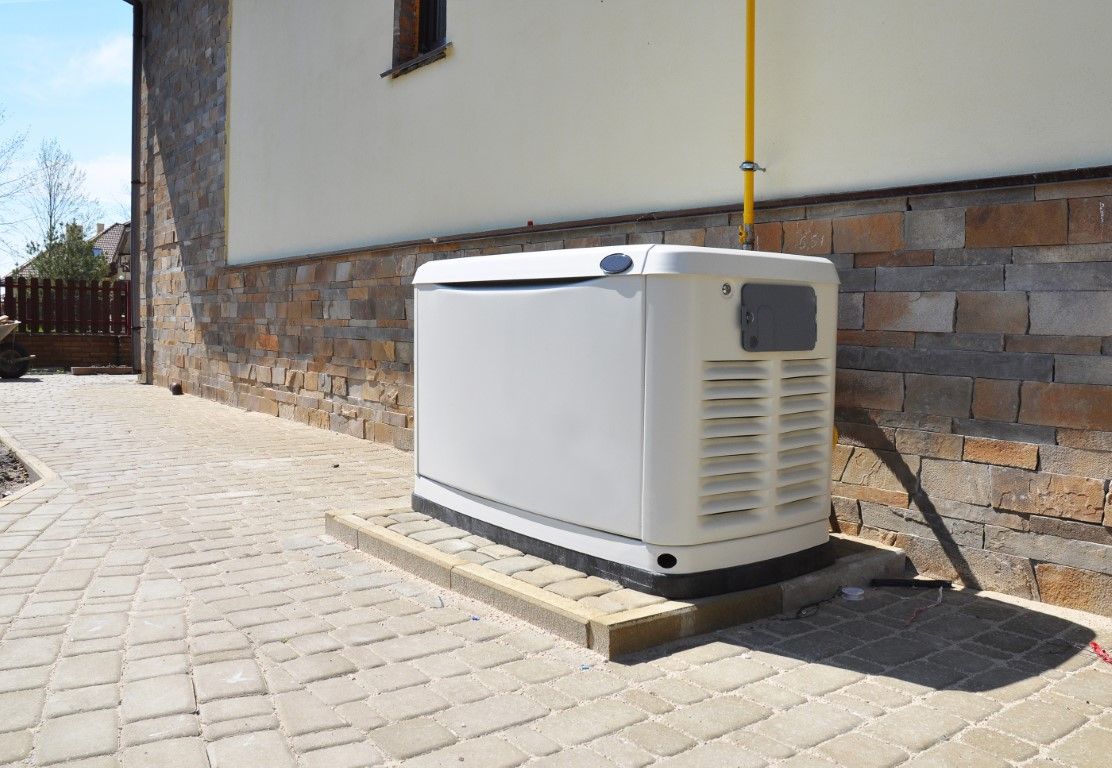
Propane Generators in Portland OR
Propane generators operate using propane gas as their primary fuel source. These generators work by igniting propane within an internal combustion engine, which in turn drives a generator to produce electrical power. The key components include a propane tank, an engine, an alternator, and a control panel. Propane, a clean-burning fuel, is stored in a tank and transported to the generator where it is mixed with air and ignited. The engine’s power turns the alternator, converting mechanical energy into electrical energy.
Comparison with Other Types of Generators
When comparing propane generators to other types like diesel, gasoline, and natural gas generators, several factors come into play. Diesel generators are known for their durability and power, but they are often louder and emit more pollutants. Gasoline generators, while more readily available, can be less efficient and have a shorter storage life for fuel. Natural gas generators are similar to propane generators in terms of cleanliness and convenience but require a continuous gas supply. Propane generators stand out due to their cleaner emissions and longer shelf life of the fuel, making them an attractive option for residential and commercial use.
Installation Requirements
Installing a propane generator involves several key steps. First, you need to choose a suitable location that provides adequate ventilation and easy access for maintenance. The generator should be placed on a stable, level surface to ensure proper operation. A licensed professional will connect the generator to a propane tank, ensuring that all connections are secure and leak-free. Additionally, the installation should comply with local codes and regulations, which may require permits and inspections. Proper grounding and electrical connections are also crucial to ensure safety and functionality.

We will get back to you as soon as possible.
Please try again later.
Regular Maintenance Tasks
Maintaining a propane generator involves routine tasks to ensure reliable operation. Regularly check and replace the engine oil as recommended by the manufacturer. The air filter should be cleaned or replaced to prevent dust and debris from affecting engine performance. Inspect the propane tank and connections for leaks and ensure the tank is properly filled. Battery maintenance is also important; check the charge and connections to avoid starting issues. Periodic tests of the generator’s operation under load conditions can help identify any potential problems before they become serious.
Troubleshooting Common Issues
Even with regular maintenance, issues can arise with propane generators. One common problem is difficulty starting, which may be caused by a weak battery or a clogged air filter. If the generator runs but does not produce power, the issue might be related to the alternator or circuit connections. Unusual noises or vibrations can indicate mechanical problems that need attention. If you notice a drop in performance or irregular operation, checking for fuel supply issues and ensuring all connections are secure can help diagnose the problem.
Applications of Propane Generators
Propane generators are versatile and can be used in various applications. They are popular for residential backup power, providing electricity during outages and ensuring that essential systems like heating and refrigeration remain operational. In commercial settings, propane generators can power equipment and maintain operations during power interruptions. They are also useful for recreational purposes, such as camping and outdoor events, where access to reliable power is needed.
Benefits of Propane Generators
Propane generators offer several advantages. They are known for their cleaner operation compared to gasoline and diesel generators, producing fewer emissions and contributing less to air pollution. Propane has a longer shelf life than gasoline, which means it can be stored for extended periods without deteriorating. Additionally, propane generators are typically quieter than their diesel counterparts, making them a good choice for residential areas. Their efficiency and lower maintenance needs also add to their appeal.
Factors to Consider When Choosing a Generator
When selecting a propane generator in Portland, OR, consider factors such as power output, fuel efficiency, and size. Determine the wattage required to power your essential appliances or equipment to choose a generator with the appropriate capacity. Evaluate the fuel consumption rate to ensure it aligns with your usage and storage capabilities. Size and portability are also important, especially if you need a generator that can be moved easily or fit in a specific location.
If you're considering a propane generator for your home or business in Portland, OR, our team is here to help. We offer expert advice, installation services, and maintenance support to ensure you get the most out of your generator. Contact us today to discuss your needs and find the best solution for reliable, efficient power.
Understanding the Cost Benefits of Propane Generators Over Time
Propane generators have become a popular choice for home and business backup power needs. They offer several advantages over other types of generators, especially when it comes to cost efficiency. Understanding the long-term cost benefits of propane generators can help you make an informed decision about your backup power solution. In this article, we’ll explore why propane generators can be a smart financial choice over time, comparing their costs and benefits to other options.

Increased Resale Value
A propane generator can increase the resale value of your property. Buyers often view propane generators as a premium feature due to their efficiency and lower operating costs. If you decide to sell your home or business, having a propane generator could make your property more attractive to potential buyers, potentially leading to a higher sale price.
Reliability and Convenience
Propane generators are known for their reliability and ease of use. They start quickly and operate smoothly, providing peace of mind during power outages. Their reliability can reduce the likelihood of emergency repairs, which can be costly. The convenience of not needing to regularly check or replace fuel can also save you time and effort, contributing to overall cost savings.
Lower Fuel Costs
One of the primary advantages of propane generators is their fuel efficiency. Propane tends to be less expensive than gasoline or diesel. Over time, this can lead to substantial savings, particularly if you use the generator frequently. Propane also has a higher energy content per unit compared to gasoline, meaning you get more power for less fuel.
Longer Storage Life
Propane has a much longer shelf life compared to gasoline or diesel. Gasoline can degrade and lose its effectiveness over time, requiring regular fuel changes and maintenance. Diesel can also suffer from issues like gelling in cold weather. Propane, however, remains stable and effective for years. This stability means you don't have to worry about fuel replacement or degradation, which can save you money in the long run.
Safety Considerations
Propane is less flammable than gasoline and diesel, which can contribute to a safer environment around your generator. This increased safety can reduce the risk of accidents or fuel spills, potentially lowering insurance premiums or repair costs associated with fuel-related incidents.
Reduced Maintenance Costs
Propane generators often require less maintenance than gasoline or diesel generators. The combustion process in propane generators is cleaner, which means there’s less buildup of carbon and other deposits in the engine. This reduced wear and tear translates to fewer maintenance issues and longer intervals between service appointments. Lower maintenance costs add up over the years, making propane generators a cost-effective option.
Environmental Benefits
While not directly a cost benefit, the environmental advantages of propane can lead to financial savings. Propane is a cleaner-burning fuel, producing fewer pollutants compared to gasoline and diesel. This reduced environmental impact can sometimes translate into tax incentives or rebates. Additionally, businesses and homeowners committed to green practices may find these benefits align with their values, potentially avoiding fines or meeting regulatory requirements.
If you’re considering investing in a propane generator and want to learn more about the cost benefits, we’re here to help. Our team can provide detailed information, answer your questions, and assist you in finding the right propane generator for your needs. Contact us today to explore your options and make an informed decision about your backup power solution.
How to Prepare Your Propane Generator for Seasonal Changes
As the seasons change, so do the demands on your propane generator. Whether you're transitioning from summer to fall or preparing for winter, ensuring that your generator is ready for the new season is crucial for reliable performance. Seasonal preparation helps avoid unexpected breakdowns and keeps your generator running smoothly when you need it most. This guide will walk you through the steps to prepare your propane generator for seasonal changes effectively.
Check and Replace the Oil
The first step in preparing your propane generator for seasonal changes is to check the oil level and condition. Over time, oil can degrade, affecting the performance and longevity of your generator. Before you start using it for the new season, check the oil level and its condition. If the oil appears dirty or has been in use for more than recommended, it’s time to replace it with fresh oil. Consult your generator’s manual for the correct type and quantity of oil to use.
Inspect and Replace the Air Filter
The air filter prevents dirt and debris from entering the engine and affecting its performance. A clean air filter ensures that your generator runs efficiently. Inspect the air filter for any signs of clogging or damage. If the filter is dirty or damaged, replace it with a new one. This simple maintenance task can significantly improve your generator’s performance and extend its lifespan.
Check the Propane Supply
Ensure that your propane tank is full and that there are no leaks. Inspect the connections between the tank and the generator for any signs of wear or damage. If you detect any issues, address them immediately to avoid potential hazards. Additionally, it’s a good idea to have a professional inspect your propane system periodically to ensure everything is in good working order.
Test the Battery
Many propane generators have a battery that powers the start mechanism. As seasons change, batteries can lose their charge or degrade. Test the battery to ensure it holds a charge and is in good condition. If the battery is weak or old, consider replacing it to ensure reliable starting when you need the generator.
Clean the Generator
Dirt and debris can accumulate on your generator, affecting its performance. Before the new season starts, clean the exterior of the generator to remove any dust, leaves, or other debris. Avoid using water directly on the generator; instead, use a dry cloth or a vacuum to clean it. Keeping the generator clean helps prevent overheating and other operational issues.
Inspect and Test the Generator
Conduct a thorough inspection of your generator to check for any signs of damage or wear. Look for loose connections, rust, or any other visible issues. After inspecting, perform a test run to ensure that the generator starts and operates smoothly. This step helps identify any potential problems early on, so you can address them before they become major issues.
Update and Review Your Maintenance Records
Keep track of all maintenance activities and updates in a maintenance log. Record the date and details of each service task performed. Reviewing and updating your maintenance records helps you stay organized and ensures that you follow the recommended maintenance schedule for your generator.
Preparing your propane generator for seasonal changes is an essential part of maintaining its reliability and efficiency. If you need assistance with any of these tasks or have questions about your generator, don’t hesitate to reach out to us. Our team of experts is here to help with all your generator maintenance needs. Contact us today to schedule a service appointment or get more information about keeping your propane generator in top condition for every season.
Let's Connect!
Looking for dependable power solutions? Hire us for expert assistance. Our team is dedicated to ensuring your home or business stays powered during outages, providing peace of mind and security. Trust us to handle your power needs with professionalism and expertise.